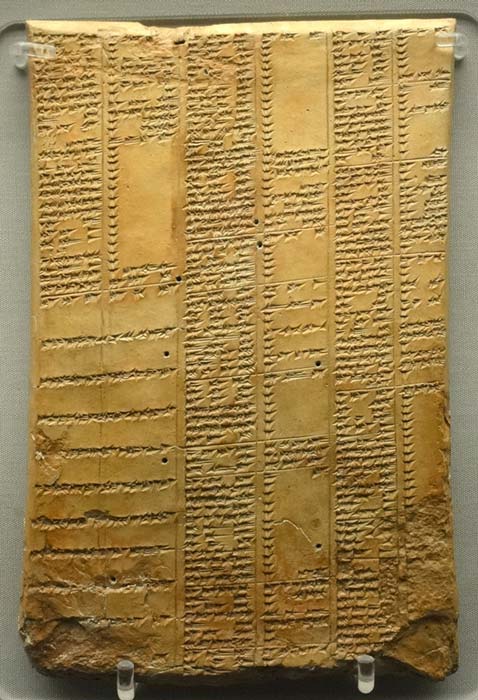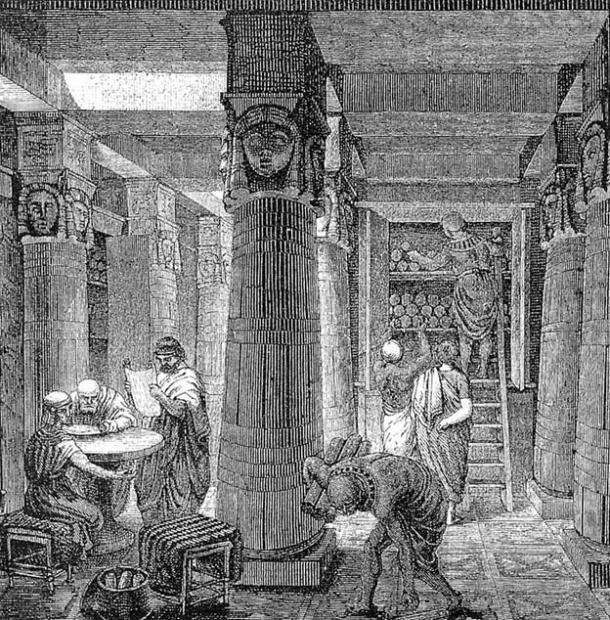Best 100 Smart Writing Techniques, Information, Courses, eBooks, Books, Products and Services plus lots of Promotional Contents, Free for all Visitors
Does writing well matter in an age of instant communication? Drawing on the latest research in linguistics and cognitive science, Steven Pinker replaces the recycled dogma of style guides with reason and evidence.
We’re excited to present the full, extended interview with Margaret Atwood conducted by our Young Ambassadors Emily Webb and Grace Murray earlier in the year. The interview covers everything from how Margaret started writing, why her novels tackle such challenging subjects and her top 5
Stephen King discusses his career and new book “End of Watch,” and receives recognition for his work in literacy from Librarian of Congress Carla Hayden at the 2016 Library of Congress Book Festival in Washington, D.C.
++++
Writing
From Wikipedia, the free encyclopedia Read more: https://wiki2.org/en/Writing

The Rosetta Stone, with writing in three different scripts, was instrumental in deciphering Ancient Egyptian.
Writing is a medium of human communication that involves the representation of a language with symbols. Writing systems are not themselves human languages (with the debatable exception of computer languages); they are means of rendering a language into a form that can be reconstructed by other humans separated by time and/or space. While not all languages utilize a writing system, those with systems of inscriptions can complement and extend capacities of spoken language by enabling the creation of durable forms of speech that can be transmitted across space (e.g., correspondence) and stored over time (e.g., libraries or other public records). It has also been observed that the activity of writing itself can have knowledge-transforming effects, since it allows humans to externalize their thinking in forms that are easier to reflect on and potentially rework. Writing relies on many of the same semantic structures as the speech it represents, such as lexicon and syntax, with the added dependency of a system of symbols to represent that language’s phonology and morphology. The result of the activity of writing is called a text, and the interpreter or activator of this text is called a reader.
As human societies emerged, collective motivations for the development of writing were driven by pragmatic exigencies like keeping history, maintaining culture, codifying knowledge through curricula and lists of texts deemed to contain foundational knowledge (e.g., The Canon of Medicine) or to be artistically exceptional (e.g., a literary canon), organizing and governing societies through the formation of legal systems, census records, contracts, deeds of ownership, taxation, trade agreements, treaties, and so on. Amateur historians, including H.G. Wells, had speculated since the early 20th century on the likely correspondence between the emergence of systems of writing and the development of city-states into empires. As Charles Bazerman explains, the “marking of signs on stones, clay, paper, and now digital memories—each more portable and rapidly travelling than the previous—provided means for increasingly coordinated and extended action as well as memory across larger groups of people over time and space.” For example, around the 4th millennium BC, the complexity of trade and administration in Mesopotamia outgrew human memory, and writing became a more dependable method of recording and presenting transactions in a permanent form. In both ancient Egypt and Mesoamerica, on the other hand, writing may have evolved through calendric and political necessities for recording historical and environmental events. Further innovations included more uniform, predictable, and widely dispersed legal systems, distribution and discussion of accessible versions of sacred texts, and the origins of modern practices of scientific inquiry and knowledge-consolidation, all largely reliant on portable and easily reproducible forms of inscribed language.
Individual, as opposed to collective, motivations for writing include improvised additional capacity for the limitations of human memory (e.g., to-do lists, recipes, reminders, logbooks, maps, the proper sequence for a complicated task or important ritual), dissemination of ideas (as in an essay, monograph, broadside, petition, or manifesto), imaginative narratives and other forms of storytelling, personal or business correspondence, and lifewriting (e.g., a diary or journal).
The Write Channel with Nicola Monaghan Some links may be affiliate links. This means I earn a small commission if you go on to buy a product via those links but this doesn’t cost you anything extra. Thanks for watching and for reading this information!
Modern importance
In many parts of the world, writing has become an even more important part of daily life as digital technologies have helped connect individuals from across the globe through systems such as e-mail and social media. Such technologies have brought substantial amounts of routine reading and writing into most modern workplaces. In the United States, for example, the ability to read and write is necessary for most jobs, and multiple programs are in place to aid both children and adults in improving their literacy skills. For example, the emergence of the writing center and community-wide literacy councils aim to help students and community members sharpen their writing skills. These resources, and many more, span across different age groups in order to offer each individual a better understanding of their language and how to express themselves via writing in order to perhaps improve their socioeconomic status.
Other parts of the world have seen an increase in writing abilities as a result of programs such as the World Literacy Foundation and International Literacy Foundation, as well as a general push for increased global communication.

Comparative evolution from pictograms to abstract shapes, in Mesopotamiancuneiforms, Egyptianhieroglyphs and Chinese characters.
Writing From Wikipedia, the free encyclopedia Read more: https://wiki2.org/en/Writing
+++++
Writing
Read more: https://www.wikihow.com/Category:Writing
Whether you want to become a travel writer or just want to write about your hobbies, wikiHow’s Writing category can help you be a better writer! Find helpful articles on increasing your word count, adding footnotes, publishing your writing, and more. The advice you need to write more effectively is just a few clicks away!

+++++
How to Write Read more: https://www.wikihow.com/Write
Co-authored by Christopher Taylor, PhD
Writing can be an amazing hobby and a necessary skill. From realistic fiction to mysteries to sci-fi to poetry to academic papers, your writing is only limited by your imagination. Keep in mind that writing is a lot more than putting pen to paper: it takes reading, research, thinking, and revising. While not all writing methods work for everyone, there are some things all writers can do to boost their craft and create a comprehensive, engaging piece.

++++++
++++
Lists of 100 best books
From Wikipedia, the free encyclopedia
Many publishers have lists of 100 best books, defined by their own criteria. This article enumerates some lists of “100 best” books for which there are fuller articles.
Among them, Science Fiction: The 100 Best Novels (Xanadu, 1985) and Modern Fantasy: The 100 Best Novels (Grafton, 1988) are collections of 100 short essays by a single author, David Pringle, with moderately long critical introductory chapters also by Pringle. For publisher Xanadu, Science Fiction was the first of four ”100 Best” books published from 1985 to 1988. The sequels covered crime and mystery, horror, and fantasy.
Read more : https://wiki2.org/en/Lists_of_100_best_books
++++
Best 100 Books To Read In A Lifetime: Books – Amazon.com
So many books, so little time. With this in mind, the Amazon Books editors set out to compile a list of 100 Books to Read in a Lifetime. We had a few goals when we started out: We wanted the list to cover all stages of a life (which is why you’ll find children’s books in here), and we didn’t want the list to feel like homework. Of course, no such list can be comprehensive – our lives, we hope, are long and varied – but we talked and argued and sifted and argued some more and came up with a list, our list, of favorites. What do you think? How did we do?
++++
Libraries are human collectives memory from history memorized by all means, for anybody who wants to remember and make the best meaning!
Library From Wikipedia Read more: https://wiki2.org/en/Library
A library is a curated collection of sources of information and similar resources, selected by experts and made accessible to a defined community for reference or borrowing, often in a quiet environment conducive to study. It provides physical or digital access to material, and may be a physical location or a virtual space, or both. A library’s collection can include books, periodicals, newspapers, manuscripts, films, maps, prints, documents, microform, CDs, cassettes, videotapes, DVDs, Blu-ray Discs, e-books, audiobooks, databases, table games, video games and other formats. Libraries range widely in size up to millions of items. The word for “library” in many modern languages is derived from Ancient Greek βιβλιοθήκη (bibliothēkē), originally meaning bookcase, via Latin bibliotheca.

The Library of the Palais Bourbon in Paris

Duke Humfrey’s Library, Oxford, England
The first libraries consisted of archives of the earliest form of writing—the clay tablets in cuneiform script discovered in Sumer, some dating back to 2600 BC. Private or personal libraries made up of written books appeared in classical Greece in the 5th century BC. In the 6th century, at the very close of the Classical period, the great libraries of the Mediterranean world remained those of Constantinople and Alexandria. The libraries of Timbuktu were also established around this time and attracted scholars from all over the world.
A library is organized for use and maintained by a public body, an institution, a corporation, or a private individual. Public and institutional collections and services may be intended for use by people who choose not to—or cannot afford to—purchase an extensive collection themselves, who need material no individual can reasonably be expected to have, or who require professional assistance with their research. In addition to providing materials, libraries also provide the services of librarians who are experts at finding and organizing information and at interpreting information needs. Libraries often provide quiet areas for studying, and they also often offer common areas to facilitate group study and collaboration. Libraries often provide public facilities for access to their electronic resources and the Internet.
++++
+++


British Museum, London, England, Cuneiform Tablets Display from Ashurbanipal: The Oldest Surviving Royal Library in the World with Over 30,000 Clay Tablets

Ashurbanipal: The Oldest Surviving Royal Library in the World with Over 30,000 Clay Tablets

6. Table illustrating the simplification of cuneiform signs. Illustration by Ernest A. Budge and Sir Leonard W. King, A Guide to the Babylonian and Assyrian Antiquities (London: British Museum Trustees, 1922), 22. Sumerian was spoken in the most southern part of ancient Mesopotamia. With its oldest texts dating to no later than 3000 BCE, it has the distinction of being the first attested language known to us. After its death as a spoken language, about 2000 BCE, it continued to be studied in the Mesopotamian school system for another thousand years. Sumerian literature is the oldest preserved literature in the world, and some of its compositions still have the power to move us today.

Mesopotamia Daily Life And Social Structure https://www.pinterest.ca/pin/587367976373708113/

The Royal Library of Alexandria, or Ancient Library of Alexandria, in Alexandria, Egypt, was probably the largest, and certainly the most famous, of the libraries of the ancient world. It flourished under the patronage of the Ptolemaic dynasty, and functioned as a major center of scholarship, at least until the time of Rome’s conquest of Egypt, and probably for many centuries thereafter.
Library of Alexandria The Great Library of Alexandria in Alexandria, Egypt, was one of the largest and most significant libraries of the ancient world. The Library was part of a larger research institution called the Mouseion, which was dedicated to the Muses, the nine goddesses of the arts.

The Great Library of Alexandria, O. Von Corven, 19th century ( Public Domain )

The Bibliotheca Alexandrina (Latin ) for “Library of Alexandria” Egyptian Arabic https://en.wikipedia.org/wiki/Bibliotheca_Alexandrina



+++++
List of largest libraries
From Wikipedia, the free encyclopedia
This sortable list of largest libraries includes libraries that, as measured in 2008 or subsequently, store 15 million or more items